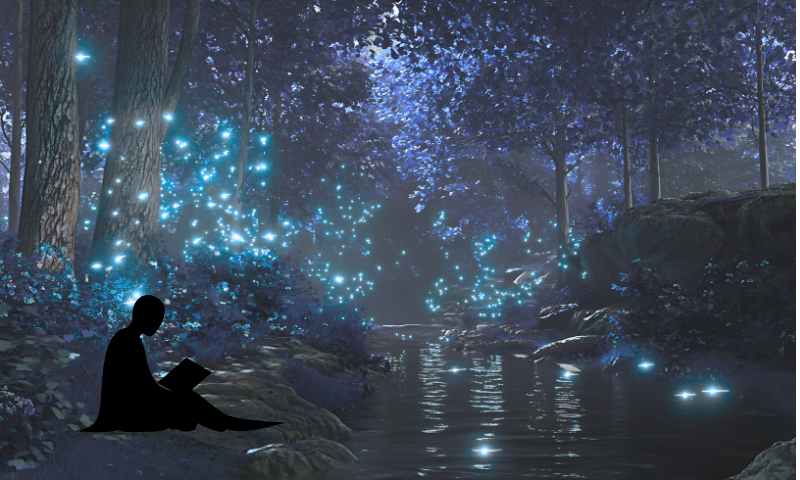
Intro
“Darkness turns familiar landscapes strange, evoking awe by its very nature, in ways that meet people wherever they stand.” -Leigh Ann Henion
Welcome to December, where in the northern hemisphere, the winter solstice was on December 21, marking it the darkest day of the year, but is darkness a negative thing? Quite the opposite. I’m reading Leigh Ann Henion’s Night Magic, which celebrates her journeys into the night of Appalachia and other places where magic happens: moon gardens, synchronous fireflies, bats, bioluminescent mushrooms (foxfire), and other profoundly beautiful things.
I wish peace and love for everyone this holiday, but what I really hope for is the same among us as a human race. We can find solitude and beauty in natural places and remember the planet we were born on and try to preserve its remaining ecology. Without it, we wouldn’t be. I encourage you to get out and remind yourself of the simple things in life this holiday, of the absolute magic of the night sky, natural landscapes, and even the smallest tiny things we see in the forests, oceans, deserts, and other biomes. To me, these simple but sometimes complex things remind me to be human and have empathy and love for others.
Investigation of darkness is a concept similar to what Pola Oloixarac—author of Dark Constellations—and I discussed a couple years ago.
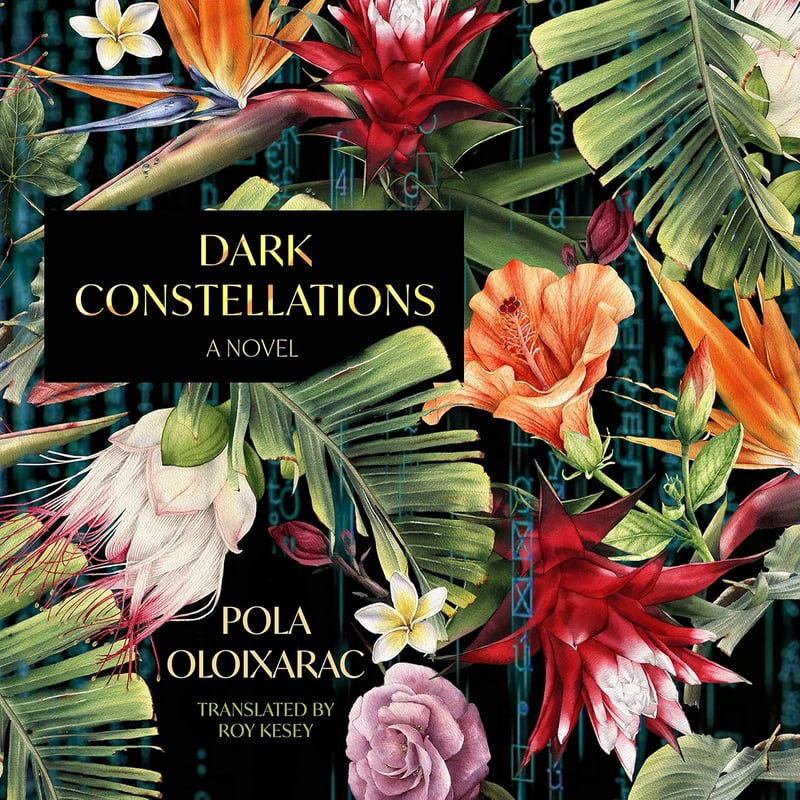
Pola said:
Dark constellations were the way the Incas named and organized their astronomic exploration of the night sky. In the southern hemisphere, unlike the North, the dark spaces between the stars are much wider: interestingly, the Incas built their characters and stories as written inside the dark spaces, and not around the lights dots of the stars like the Western tradition.
Appalachian Things
You might have noticed during the past few years of this newsletter that I have fond memories of, and a close bond with, Appalachia, particularly eastern Kentucky and Tennessee, where I spent what I feel were the most quality years of my childhood and young adult years. This extends to my adult years where I’ve spent some epiphanous years, including a road trip back to the old places, funerals of loved ones, and an upcoming journey this summer. What I gleaned from my early years was not a stereotypical eulogy but people more resilient, loving, self-determined, and strong than Appalachians are generally given credit for. I have a few new announcements about the coming year at Dragonfly.eco, a curated site for all things ecofiction, with the motto “blowing your mind with wild words and worlds”, and one of them is a focused exploration of natural places in Appalachia.
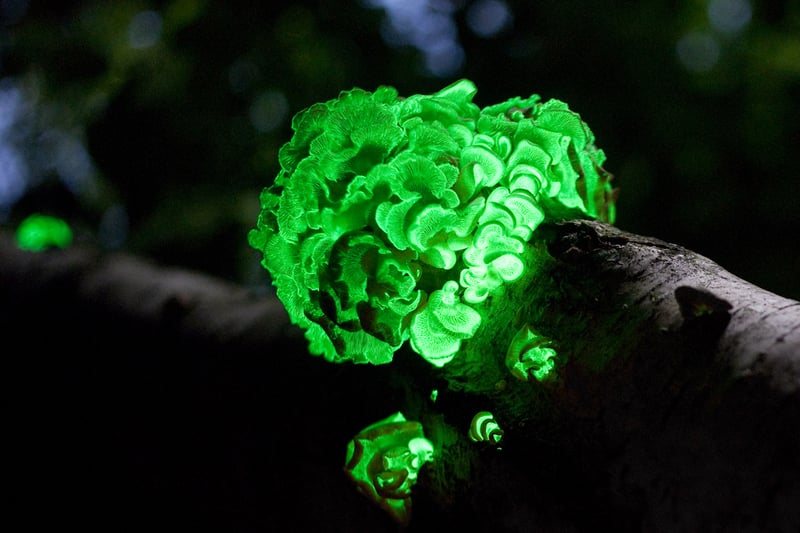
News
This month I interviewed R.A. Busby about her novel (Stelliform Press 2024), You Will Speak for the Dead. This book is the newest post in the World Ecofiction series and is described as “sporror”. It’s a story of a gay man, Paul, in grief about the death of his mother and a breakup. He works with a team of people who clean houses (think Sunshine Cleaning), and the house they’re cleaning belongs to a woman who has gone missing; she’s also a hoarder. What they find in the house are bittersweet memories of the woman’s life as well as a bevy of spores that begin to transform Paul’s body and spirit. It’s a wonderful story of change, renewal, decomposition, and memory.
Speaking of the monthly series, which has been going on for nearly a decade, I have decided in the new year to not commit to an interview or article every month. It’s hard to keep up because I’ve been more busy, but I will attempt the occasional interview and already have two planned for the new year.
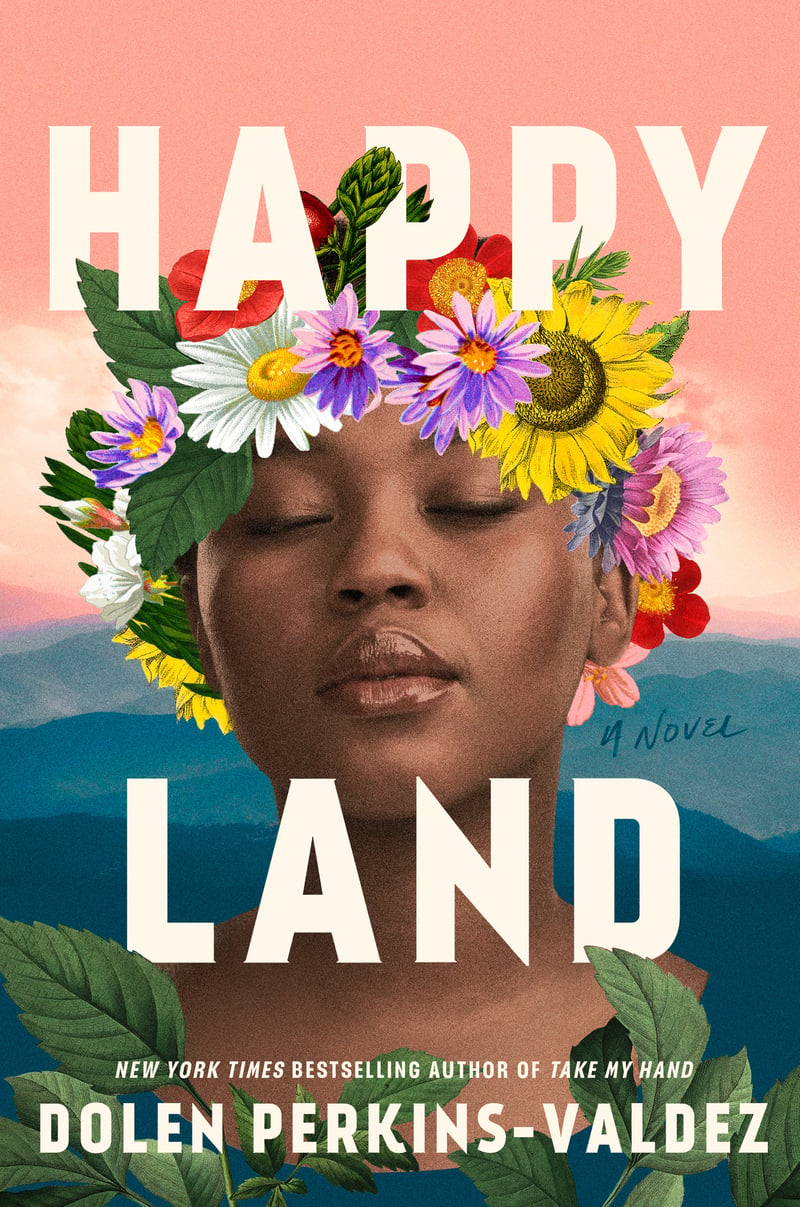
Courtesy Penguin Random House Canada While I still plan to go around the world in spotlights, I want a subset of that focus to be about the Appalachian region. I have a talk planned with Nichole Amber Moss, who lives and fights destruction of local ecology in West Virginia. She’s also a poet and is working on a speculative novel. I met Nichole in the Rewilding Our Stories Discord, and she turned me on to Night Magic. I will revisit my chat with Jessica Cory, editor of Mountains Piled Upon Mountains: Appalachian Nature Writing in the Anthropocene. I will also re-explore music in Appalachia, including my article Rising Appalachia at ClimateCultures. And there’s more, including a promising novel coming in April, by Dolen Perkins-Valdez, called Happy Land (Berkley). It’s based on a true story of freed slaves who founded The Kingdom of the Happy Land, in the hills of Western North Carolina. Inspired by African kingdoms, the people found freedom and new identity. I’ve got the book on pre-order, thanks to a gift card from my daughter this holiday, and am so excited to read it. The new focus will also tie stories to natural ecology and place.
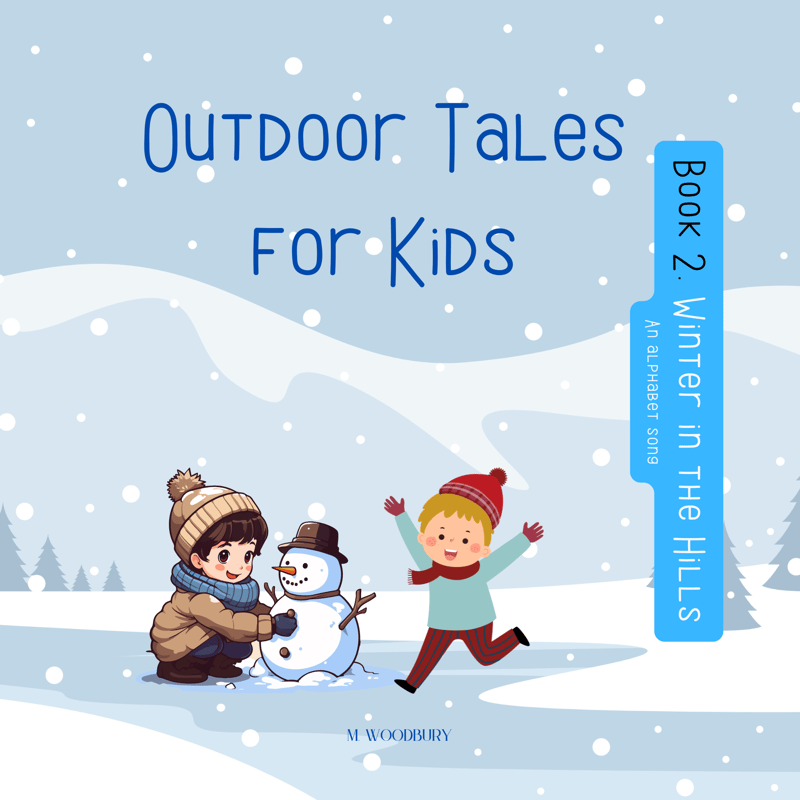
My own book from Dragonfly Publishing I have started a novel about Appalachia as well, based on memories from that region. I also wrote a non-distributed children’s book in my new series Outdoor Tales for Kids. This one’s titled Winter in the Hills and takes place in eastern Kentucky. You can order it directly through Dragonfly Publishing. It’s an alphabet song with animals, fungi, and plants.
Film of the month: This month it’s Flow—directed by Gints Zilbalodis—a beautiful and heart-wrenching animated movie about a cat surviving in what feels like a post-apocalyptic world where humans are nowhere to be seen anymore but whose past remnants are still around, and flooding and tidal flow (receding water) cause havoc due to tsunamis. Cat survives along with other species it finds: a capybara, ring-tailed lemur, secretary bird, and dog. They’re all misfits who have lost their friends or family and find each other. There’s no human or other voices among the animals; it’s mostly a silent film, along with a soft, mesmerizing soundtrack. It’s stunning and made me laugh and cry.
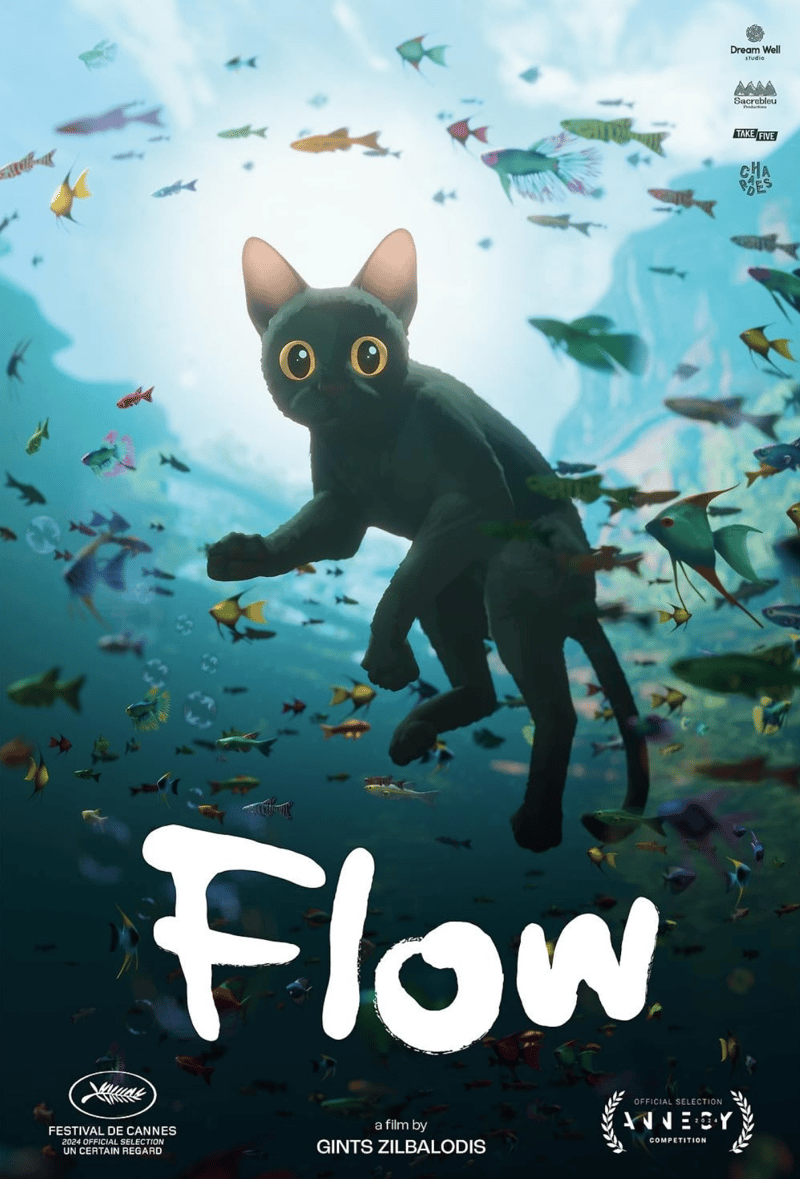
Screenshot of movie poster, courtesy IMDB It’s a great time to join the Rewilding Our Stories Discord. We’ve announced our 2025 book club, which is similar to our Storygraph environmental reading challenge of 2024, but this year we’ll decide our own subcategories. Last year, we read anywhere from a few books up to 25 books each, and this year have several bingo cards to choose from (if you have Canva Pro—otherwise you can make your own categories). Discussion about books is on Discord, and I believe these talks enhanced our knowledge of what books to read!
Dragonfly.eco’s playlist grew to over 350 songs in the last decade, and while it’ll still be around indefinitely, in the new year I will start a new playlist. I will not be calling it “Song of the Week”; it’s too much to keep up with that many songs. Instead, I will start with some of my favorite songs and add an occasional new song.
Resources
In case you’ve missed these exciting resources, including newest books at Dragonfly.eco, check ‘em out!
LinkTree: Find out more about me.
Rewilding Our Stories: A Discord community where you can find resources, reading, and writing fun in fiction that relates strongly to nature and environment.
Our environmental/nature song-of-the-week playlist goes back to 2015, but a new playlist is coming in 2025.
Book recommendations: a growing list of recs.
Eco/climate genres: They’re all over the place, and here’s an expanding compendium.
Inspiring and informative author quotes from Dragonfly’s interviews.
List of ecologically focused games.
List of eco/climate films and documentaries.
Eco-fiction links and resources.
Book database: Database of over 1,100 book posts at Dragonfly.eco.
Turning the Tide: The Youngest Generation: Fiction aimed toward children, teens, and young adults.
Indie Corner: The occasional highlight of authors who publish independently.
Artists & Climate Change. This site is no longer being updated but still has a wealth of info. I was a core writer for their team, and I’m both honored and grateful. Look for my “Wild Authors” series there.
You just read issue #49 of Dragonfly.eco News. You can also browse the full archives of this newsletter.
